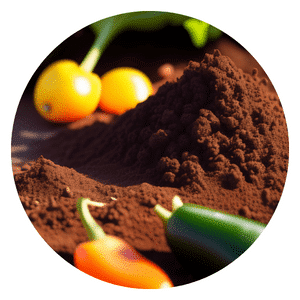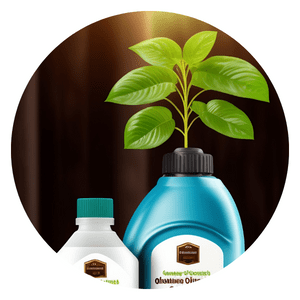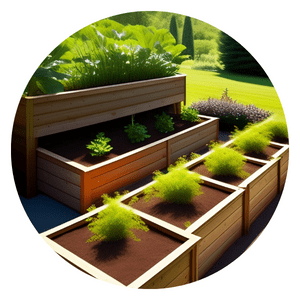Can You Grow Eggplant in New York?
Eggplant, also known as aubergine, is an essential vegetable in many cuisines around the world.
It’s used in dishes like ratatouille and moussaka, and can be grilled, roasted, fried or stewed.
Growing eggplants at home allows you to enjoy fresh produce straight from your garden, and New York is an ideal location for cultivating this delicious vegetable.
Although eggplants are native to Asia, they have been widely grown in Europe and America for centuries.
In recent years, urban gardening has become increasingly popular across the United States as people seek to connect with their food sources and lead healthier lifestyles.

New York Eggplant Menu
Start Indoors
Starting your eggplant seeds indoors is a great way to get ahead of the shorter growing season in New York.
By doing so, you can ensure that your plants are established and ready for transplanting once the last frost date has passed.
To start your seeds indoors, you will need to purchase some seed-starting trays or pots, as well as some high-quality potting soil.
When planting your seeds, make sure they are spaced out evenly and covered with a thin layer of soil.
Be sure to water them regularly and keep them in a warm, sunny location until they begin to sprout.
Once they have grown enough to be transplanted (usually around 4-6 weeks after planting), gently transfer them into larger pots or directly into the ground.
By starting your eggplant seeds indoors, you can give yourself a head start on the growing season and ensure that your plants have ample time to establish themselves before harvest time.
With proper care and attention throughout the growing process, you can enjoy delicious home-grown eggplants all summer long!
Choose Early-Maturing Varieties
When it comes to growing eggplants in New York, one of the most crucial things to remember is to choose early-maturing varieties.
This is because the climate in New York can change quickly, and growers need to ensure that their plants have enough time to produce a bountiful harvest before colder temperatures arrive.
When selecting early-maturing eggplant varieties, growers should look for specific characteristics such as good disease resistance, high yield potential, and flavor.
Some of the best early-maturing eggplant varieties for New York include Black Beauty, Casper White Eggplant, and Rosa Bianca.
In addition to choosing the right variety, it’s also essential for growers to provide their plants with proper care and maintenance throughout the growing season.
This includes ensuring they are planted in nutrient-rich soil with adequate drainage, providing sufficient water and sunlight, controlling pests and diseases effectively, and harvesting fruits when they reach maturity.
With these tips in mind, growing eggplants in New York can be a rewarding experience that yields delicious results.
Use Black Plastic Mulch
One effective way to grow eggplant in New York is by using black plastic mulch. This method involves laying down sheets of black plastic over the soil before planting eggplant seedlings.
The plastic absorbs heat from the sun, which heats up the soil faster than if it were left uncovered. This is especially important for eggplants, which prefer warm soil temperatures between 70-85°F.
In addition to warming up the soil, black plastic mulch also helps retain moisture by reducing evaporation and preventing weeds from growing around the plants.
This can be particularly useful in New York where hot summer weather and occasional droughts can make it difficult to keep plants hydrated.
When using black plastic mulch, it’s important to cut holes or slits in the material where you plan on planting your eggplants. This will allow them to access nutrients and water from beneath the plastic while still protecting them from weeds and pests.
Overall, using black plastic mulch is a simple yet effective way to help your eggplants thrive in New York’s climate.
In the concrete jungle that never sleeps, Amidst the honking horns and bustling streets, A garden of eggplant begins to grow, As city dwellers reap what they sow. Amazed by nature's perseverance and grit, The fruits of our labour become a perfect fit. As we savour the flavour of this bountiful crop, We're reminded that even in a city, life doesn't stop.
Chappy The Gardener
Provide Full Sun
Choose a sunny location in your garden that receives ample sunlight throughout the day to promote healthy growth and fruiting.
When growing eggplants in New York, it is important to provide them with full sun. This means that they need at least 6-8 hours of direct sunlight every day to thrive.
Without this amount of sunlight, eggplants may struggle to grow and produce a healthy harvest.
To ensure that your eggplants receive enough sunlight, choose a sunny location in your garden that gets ample sunlight throughout the day. This could be an area that faces south or west, as these directions tend to get the most sun exposure.
Additionally, make sure there are no trees or buildings blocking the sun from reaching your eggplant plants.
In addition to providing full sun, it is also important to keep your eggplant plants well-watered and fertilized.
With proper care and attention, you can enjoy a bountiful harvest of delicious and nutritious eggplants in New York’s growing season!
Amend the Soil
One of the most important aspects to consider when growing eggplants in New York is the soil composition.
Eggplants prefer well-draining soil that is rich in organic matter. This means that the soil should be able to drain water easily, but also retain enough moisture for the plants to thrive.
To achieve this, it is recommended to amend the soil with compost or well-rotted manure before planting. This will help improve the overall quality of the soil and provide necessary nutrients for healthy plant growth.
Additionally, adding a layer of mulch around the base of each plant can help retain moisture and suppress weeds.
It is also important to note that different types of eggplants may have slightly different preferences when it comes to soil composition.
For example, some varieties may require more acidic or alkaline soils than others.
It’s best to research specific cultivars and adjust your planting site accordingly if needed.
Monitor Soil Moisture
One crucial aspect of growing eggplants in New York is ensuring that the soil has consistent moisture levels.
Eggplants thrive in well-draining, loamy soil that is evenly moist but not waterlogged.
To achieve this, gardeners should monitor the soil moisture levels regularly and adjust their watering schedule accordingly.
It’s recommended to water deeply once or twice a week, depending on the weather conditions and moisture needs of the plants.
When watering, ensure that all parts of the root zone are evenly moistened, which may require slower and more extended watering sessions.
Gardeners should also avoid overwatering as it can lead to waterlogging and root rot.
Additionally, mulching around eggplant plants can help retain soil moisture by reducing evaporation and regulating temperature fluctuations.
Organic materials such as straw, hay, or chopped leaves make excellent mulches for eggplants as they break down slowly and enrich the soil with nutrients.
With consistent monitoring of soil moisture levels and proper watering techniques, gardeners can grow healthy and productive eggplants in New York’s challenging climate.
Mulch to Conserve Moisture
Eggplants are a warm-season crop that thrives in well-draining soil with a pH level between 5.5 and 6.8.
To ensure the best growth for your eggplant plants, it is crucial to conserve moisture by applying organic mulch around them.
Organic mulch can include materials like grass clippings, leaves, straw, or even shredded bark.
Mulching helps regulate soil temperature by keeping it cooler during hot summer days and warmer at night. This also encourages healthy root development and prevents plants from being stressed due to extreme temperatures.
Additionally, mulching suppresses weed growth by blocking sunlight from reaching weed seeds that may be present in the soil.
By using organic mulch on your eggplant plants in New York, you will not only conserve moisture but also prevent soil erosion caused by wind or water runoff during heavy rainfalls.
A layer of two to three inches of mulch around your plants should suffice throughout the growing season.
Mulching is an easy and cost-effective way to improve overall plant health and yield while reducing water usage and maintenance time spent on weeding or erosion control.
Stake or Cage the Plants
When it comes to growing eggplant in New York, providing support for your plants is a crucial step.
Eggplants have sprawling growth and can easily take over your garden if not properly supported.
Staking or caging your plants will help keep them upright and prevent the foliage and fruit from touching the ground, reducing the risk of disease.
Staking involves using a strong wooden or metal stake to support each plant individually. This method is best for smaller gardens because it allows you to maximize space while still providing support for your eggplants.
To stake your plants, simply drive a stake into the ground next to each plant and secure it with twine or wire.
Caging, on the other hand, involves placing a large cage around multiple plants at once. This method is ideal for larger gardens because it provides support for multiple plants at once.
A tomato cage works well as an eggplant cage since they have similar growing habits and require similar support structures.
Whichever method you choose, be sure to provide adequate support early in the season before your eggplants become too heavy and begin to droop.
Monitor for Pests
Regularly inspect your plants for signs of pest activity and take appropriate measures, such as handpicking or using organic pest control methods.
One of the most important aspects of growing eggplants in New York is monitoring for pests.
Warm summers in this region can attract common eggplant pests like aphids, flea beetles, and tomato hornworms.
Regularly inspecting your plants for signs of pest activity is crucial to ensure that your crops remain healthy.
Aphids are small insects that suck sap from the leaves and stems of eggplants, causing them to wilt and eventually die.
Flea beetles feed on the leaves of young plants, leaving behind numerous tiny holes that stunt growth and reduce yields.
Tomato hornworms are large caterpillars that can quickly defoliate entire plants if left unchecked.
To control these pests, it’s essential to take appropriate measures such as using insecticidal soap or neem oil sprays to deter aphids and flea beetles.
Handpicking tomato hornworms off plants can also be effective.
Additionally, practicing good garden hygiene by removing dead plant material and weeds can help prevent the spread of disease-carrying insects.
Harvest Promptly
When growing eggplants in New York, it’s essential to harvest them promptly to ensure they reach their full potential.
Eggplants that are left on the plant for too long can become overripe and bitter, making them less desirable for consumption.
To avoid this, it’s best to keep a close eye on your eggplants as they grow and harvest them as soon as they reach a desirable size and color.
Using a sharp knife or prunin is crucial when harvesting eggplants because you want to avoid damaging the plant or leaving any part of the fruit behind.
It’s best to cut the stem of the eggplant about an inch from the fruit carefully. This will help prevent any diseases or pests from entering through the wound left by cutting too close.
Overall, harvesting eggplants promptly is vital for ensuring you get good quality produce from your garden in New York.
Keep an eye on your plants and be ready to harvest as soon as they reach a desirable size and color.
Use proper tools like a sharp knife or prunin, and you’ll have delicious eggplants in no time!
In conclusion, growing eggplant in New York is an easy and rewarding experience.
With the right soil, location, and care, this vegetable can thrive and provide delicious meals for you and your family.
Don’t be afraid to experiment with different varieties and cooking methods to truly appreciate all that eggplant has to offer.
So why not give it a try this season?
You might just be surprised at how much you enjoy growing your own fresh produce.
Happy gardening!
Click To Grow
Helps Us Grow – Share If You Like
















